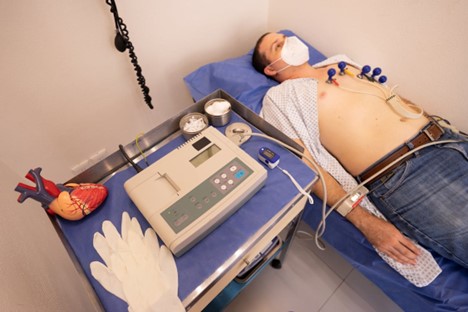Protecting Mothers and Babies: The Importance of Detecting Hypertension Early
Hypertension, commonly referred to as high blood pressure, is a silent but potentially dangerous condition that can have profound implications for both mothers and their unborn babies during pregnancy. Early detection and effective management are vital to safeguarding maternal and neonatal health. Here’s why this issue deserves attention and how proactive measures can make a difference.
Understanding Hypertension in Pregnancy
Hypertension in pregnancy is classified into two main types:
- Chronic Hypertension: This condition predates pregnancy or is diagnosed before 20 weeks of gestation.
- Gestational Hypertension: High blood pressure that develops after 20 weeks of pregnancy without signs of preeclampsia.
Both forms of hypertension increase the risk of complications such as preeclampsia, placental abruption, preterm delivery, and low birth weight. Preeclampsia is a severe complication that can lead to organ damage, seizures, and, in rare cases, maternal or fetal death.
The Impact on Maternal and Neonatal Health
Unchecked hypertension can cause significant health challenges:
- For Mothers: Increased risk of stroke, heart failure, kidney damage, and complications during delivery.
- For Babies: Restricted growth, preterm birth, or the need for neonatal intensive care.
Why Early Detection Matters
Detecting hypertension early in pregnancy allows for timely interventions to minimize risks. Regular prenatal visits, blood pressure monitoring, and awareness of symptoms like severe headaches, visual disturbances, or swelling can lead to prompt diagnosis.
Strategies for Managing Hypertension During Pregnancy
- Routine Monitoring: Blood pressure checks should be a standard part of prenatal care.
- Lifestyle Adjustments: Encouraging a balanced diet, low sodium intake, regular physical activity, and stress management can help control blood pressure.
- Medication: In cases where lifestyle changes aren’t sufficient, healthcare providers may prescribe antihypertensive medications that are safe for pregnancy.
- Close Surveillance: Women with hypertension may require more frequent prenatal visits, ultrasounds, and additional tests to monitor fetal growth and well-being.
Empowering Mothers Through Education
Raising awareness about the risks of hypertension and the importance of early detection empowers expectant mothers to advocate for their health. Educational campaigns, community programs, and accessible healthcare services are crucial in addressing this public health concern.
See the full scientific article from Office on Women’s Health.
Protecting mothers and babies from the dangers of hypertension begins with early detection, proper management, and education. By prioritizing maternal health, we can ensure healthier pregnancies and brighter futures for generations to come.
Improve your daily routine by incorporating Coenzyme Q10 (CoQ10), a powerful compound known to potentially contribute to reducing blood pressure levels. Elevate your wellness journey with the Super Ubiquinol CoQ10 supplement from the Asher Longevity Institute, carefully formulated to provide you with the optimal benefits of CoQ10.




